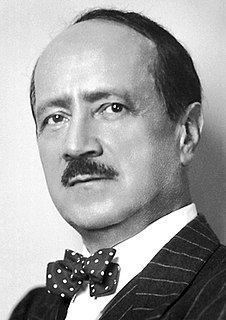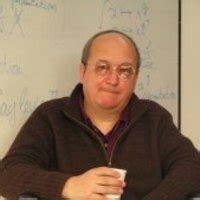A Quote by Thomas Carlyle
We have our little theory on all human and divine things. Poetry, the workings of genius itself, which, in all times, with one or another meaning, has been called Inspiration, and held to be mysterious and inscrutable, is no longer without its scientific exposition. The building of the lofty rhyme is like any other masonry or bricklaying: we have theories of its rise, height, decline and fall -- which latter, it would seem, is now near, among all people.
Quote Topics
All People
Among
Another
Any
Been
Bricklaying
Building
Decline
Divine
Exposition
Fall
Genius
Height
Held
Human
Inscrutable
Inspiration
Itself
Latter
Like
Little
Lofty
Longer
Masonry
Meaning
Mysterious
Near
Now
Other
Our
People
Poetry
Rhyme
Rise
Scientific
Seem
Theories
Theory
Things
Times
Which
Without
Would
Related Quotes
Theories of genius are the peculiar constructions of our own philosophical times; ages of genius had passed away, and they left no other record than their works; no preconcerted theory described the workings of the imagination to be without imagination, nor did they venture to teach how to invent invention.
Human experience, which is constantly contradicting theory, is the great test of truth. A system, built upon the discoveries of a great many minds, is always of more strength, than what is produced by the mere workings of any one mind, which, of itself, can do very little. There is not so poor a book in the world that would not be a prodigious effort were it wrought out entirely by a single mind, without the aid of prior investigators.
Shakespeare carries us to such a lofty strain of intelligent activity, as to suggest a wealth which beggars his own; and we then feel that the splendid works which he has created, and which in other hours we extol as a sort of self-existent poetry, take no stronger hold of real nature than the shadow of a passing traveller on the rock. The inspiration which uttered itself in Hamlet and Lear could utter things as good from day to day, for ever.
It was this same Jesus, the Christ who, among many other remarkable things, said and repeated something which, proceeding from any other being would have condemned him at once as either a bloated egotist or a dangerously unbalanced person...when He said He himself would rise again from the dead, the third day after He was crucified, He said something that only a fool would dare say, if he expected longer the devotion of any disciples-unless He was sure He was going to rise. No founder of any world religion known to men ever dared say a thing like that!
The popular and scientific views of "race" no longer coincide. The word "race," as applied scientifically to human groupings, has lost any sharpness of meaning. To-day it is hardly definable in scientific terms, except as an abstract concept which may, under certain conditions, very different from those now prevalent, have been realized approximately in the past and might, under certain other but equally different conditions, be realized in the distant future.
Remember that [scientific thought] is the guide of action; that the truth which it arrives at is not that which we can ideally contemplate without error, but that which we may act upon without fear; and you cannot fail to see that scientific thought is not an accompaniment or condition of human progress, but human progress itself.
Scientific theories need reconstruction every now and then. If they didn't need reconstruction they would be facts, not theories. The more facts we know, the less radical become the changes in our theories. Hence they are becoming more and more constant. But take the theory of gravitation; it has not been changed in four hundred years.
The true historical genius, to our thinking, is that which can see the nobler meaning of events that are near him, as the true poet is he who detects the divine in the casual; and we somewhat suspect the depth of his insight into the past who cannot recognize the godlike of to-day under that disguise in which it always visits us.
Under my definition, a scientific theory is a proposed explanation which focuses or points to physical, observable data and logical inferences. There are many things throughout the history of science which we now think to be incorrect which nonetheless would fit that which would fit that definition. Yes, astrology is in fact one.
There is one great fact, characteristic of this our nineteenth century, a fact which no party dares deny. On the one hand, there have started into life industrial and scientific forces which no epoch of former human history had ever suspected. On the other hand, there exist symptoms of decay, far surpassing the horrors recorded of the latter times of the Roman empire. In our days everything seems pregnant with its contrary.
Many theories of the ancient world seem terribly childish today, a hodge-podge of fables and false comparisons.But our theories will seem childish five-hundred years from now.Every theory is based on some analogy, and sooner or later the theory fails because the analogy turns out to be false. A theory in its day helps to solve the problems of the day.







































